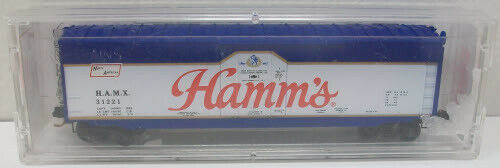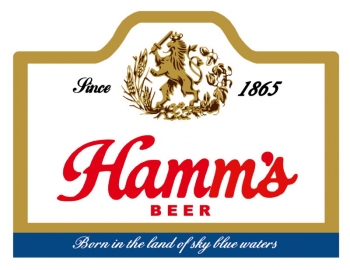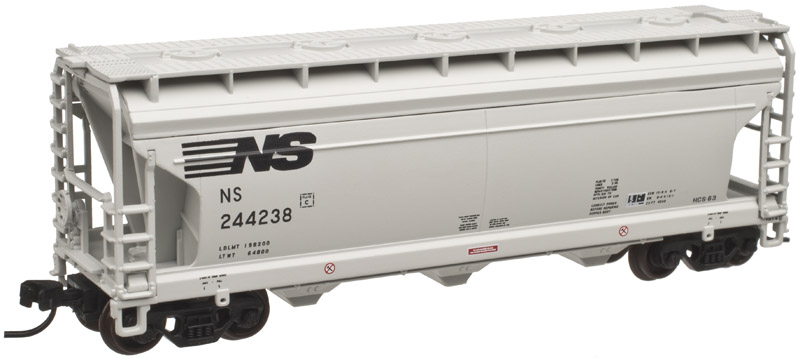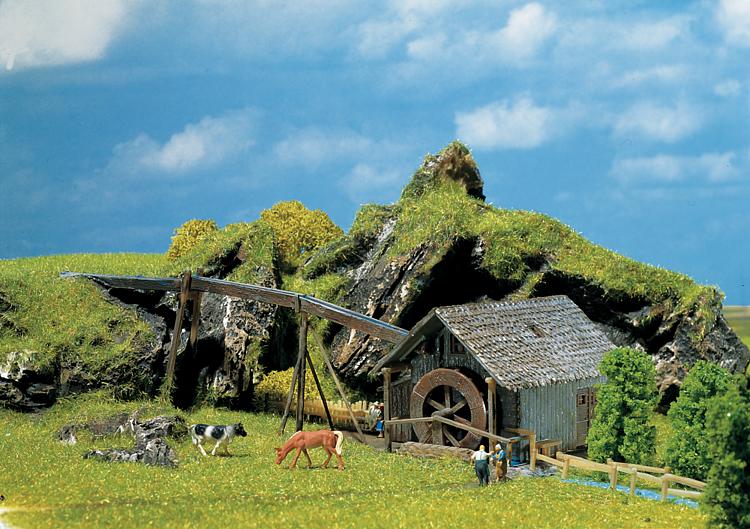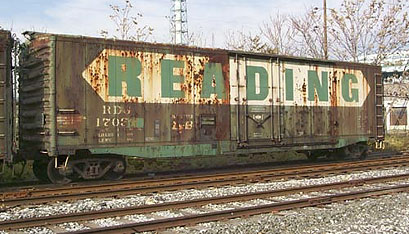Prototype History: The 50-foot boxcar made its first appearance in the 1930s and steadily grew in popularity over the years, which further improved redundancies by allowing for even more space within a given car. Today, the 50-footer remains the common boxcar size. After the second world war ended, and steel became once again readily available, steel became the go-to choice for construction of boxcars. Pullman Standard and ACF were some of the most prolific builders of these cars.
In the 1960s, the flush, "plug" style sliding door was introduced as an option that provides a larger door to ease loading and unloading of certain commodities. The tight-fitting doors are better insulated and allow a car's interior to be maintained at a more even temperature.
In the 1960s, the flush, "plug" style sliding door was introduced as an option that provides a larger door to ease loading and unloading of certain commodities. The tight-fitting doors are better insulated and allow a car's interior to be maintained at a more even temperature.
Road Name History: The Theodore Hamm Brewing Company was established in 1865 when , a German immigrant Theodore Hamm (1825-1903) inherited the Excelsior Brewery from his friend and business associate A. F. Keller, who had perished in California seeking his fortune in the gold fields. Unable to finance the venture himself, Keller had entered into a partnership with Hamm to secure funding. Upon Keller's death, Hamm inherited the small brewery and flour mill in the east side wilderness of St. Paul, Minnesota. Keller had constructed his brewery in 1860 over artesian wells in a section of the Phalen Creek valley in St. Paul known as Swede Hollow. Hamm, a butcher by trade and local salon owner, first hired Jacob Schmidt as a brew master. Jacob Schmidt remained with the company until the early 1880s, becoming a close family friend of the Hamms. Jacob Schmidt left the company after an argument ensued over Louise Hamm's disciplinary actions to Schmidt's daughter, Marie. By 1884, Schmidt was a partner at the North Star Brewery not far from Hamm's brewery. By 1899 he had established his own brewery on the site of the former Stalhmann Brewery site. In need of a new brewmaster, Hamm hired Christopher Figge who would start a tradition of three generations of Hamm's Brewmasters, with his son William and grandson William II taking the position. By the 1880s, the Theodore Hamm Brewing Company was reportedly the second largest in Minnesota.
During Prohibition, the company survived by producing soft drinks and other food products, enabling it to expand rapidly through acquisitions after the repeal of Prohibition in 1933. From 1933 until 1965 Hamm's saw much success; much of this can be attributed to William C. Figge Jr. taking over as President in 1951. Figge expanded the Hamm's brand into a national entity with breweries in St. Paul, Minnesota; Los Angeles, California; San Francisco, California; Baltimore, Maryland; and Houston, Texas. The latter two were short-lived and closed soon after they opened. As the company celebrated its 100th anniversary, the family decided to sell the brewery and leave the ever more competitive brewing industry to focus on its other ventures like its successful real estate company.
From Wikipedia
During Prohibition, the company survived by producing soft drinks and other food products, enabling it to expand rapidly through acquisitions after the repeal of Prohibition in 1933. From 1933 until 1965 Hamm's saw much success; much of this can be attributed to William C. Figge Jr. taking over as President in 1951. Figge expanded the Hamm's brand into a national entity with breweries in St. Paul, Minnesota; Los Angeles, California; San Francisco, California; Baltimore, Maryland; and Houston, Texas. The latter two were short-lived and closed soon after they opened. As the company celebrated its 100th anniversary, the family decided to sell the brewery and leave the ever more competitive brewing industry to focus on its other ventures like its successful real estate company.
From Wikipedia
Brand/Importer Information: Micro-Trains is the brand name used by both Kadee Quality Products and Micro-Trains Line. For a history of the relationship between the brand and the two companies, please consult our Micro-Trains Collector's Guide.
Manufacturer Information:  Micro-Trains Line split off from Kadee Quality Products in 1990. Kadee Quality Products originally got involved in N-Scale by producing a scaled-down version of their successful HO Magne-Matic knuckle coupler system. This coupler was superior to the ubiquitous 'Rapido' style coupler due to two primary factors: superior realistic appearance and the ability to automatically uncouple when stopped over a magnet embedded in a section of track. The success of these couplers in N-Scale quickly translated to the production of trucks, wheels and in 1972 a release of ready-to-run box cars.
Micro-Trains Line split off from Kadee Quality Products in 1990. Kadee Quality Products originally got involved in N-Scale by producing a scaled-down version of their successful HO Magne-Matic knuckle coupler system. This coupler was superior to the ubiquitous 'Rapido' style coupler due to two primary factors: superior realistic appearance and the ability to automatically uncouple when stopped over a magnet embedded in a section of track. The success of these couplers in N-Scale quickly translated to the production of trucks, wheels and in 1972 a release of ready-to-run box cars.
Micro-Trains Line Co. split off from Kadee in 1990 to form a completely independent company. For this reason, products from this company can appear with labels from both enterprises. Due to the nature of production idiosyncrasies and various random factors, the rolling stock from Micro-Trains can have all sorts of interesting variations in both their packaging as well as the products themselves. When acquiring an MTL product it is very important to understand these important production variations that can greatly enhance (or decrease) the value of your purchase.
Please consult our Micro-Trains Collector's Guide

Micro-Trains Line Co. split off from Kadee in 1990 to form a completely independent company. For this reason, products from this company can appear with labels from both enterprises. Due to the nature of production idiosyncrasies and various random factors, the rolling stock from Micro-Trains can have all sorts of interesting variations in both their packaging as well as the products themselves. When acquiring an MTL product it is very important to understand these important production variations that can greatly enhance (or decrease) the value of your purchase.
Please consult our Micro-Trains Collector's Guide
Item created by: Lethe on 2015-05-31 17:46:30. Last edited by gdm on 2020-06-05 15:34:32
If you see errors or missing data in this entry, please feel free to log in and edit it. Anyone with a Gmail account can log in instantly.
If you see errors or missing data in this entry, please feel free to log in and edit it. Anyone with a Gmail account can log in instantly.


